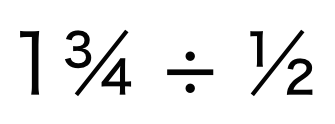Today, I had a chance to cover a class as a substitute teacher because she had a problem with her car on the way to the school. I didn’t prepare anything, only to understand just couple of minutes before the class begin, that its a Fiqh Mu’āmalāt class and topic to be covered is Khiyār.
At that time, I consciously reminded myself that our school now is moving from the traditional teacher centered learning, to the learner centered instruction. Therefore I must limit myself from providing the learners with rain of information, but to encourage them to build their knowledge and understanding.
It means, conducting a Fiqh Mu’āmalāt session without the lesson plan, will be a good advantage, provided that I myself know what Fiqh Mu’āmalāt and Khiyār are all about.
I decided not to touch too much on the Khiyār itself because I believe what the teacher planned for her class, should continue to be delivered later on. I will concentrate on few fundamental ideas on Fiqh which the teacher might not have enough time to bring it forward.
There were numbers of question I shared with the students:
- If the students understand about topics and subtopics, we have Physics, Chemistry and Biology as the subtopics to Science. So, what are the subtopics of Fiqh? Who are the siblings of Fiqh Mu’āmalāt? (‘Ibādāt, Munākahāt, Jināyāt etc)
- Why having Fiqh in our life is better than not having it?
- Does Fiqh contradicts freedom?
- If someone says, “I am doing this because of me. This is me. I don’t want to be a hypocrite by doing what I don’t want to do simply because someone told me to do so,” how do you relate Fiqh to someone like this?
In order to promote learner centered instruction, a teacher must have patience with the silence. To me, this was the hardest part. Of course there were two or three of them who were more enthusiastic to share their opinion. But the majority were in complete silence. Sometimes, I saw their lips moving. They were whispering the answers to themselves but reluctant to voice out.
I tried again and again.
I explained to them that Fiqh is about managing reality. If the classical books in Fiqh gave examples on how to pray in a boat, we must understand that pray must continue but boat is now an airplane or a train. The learners are also reminded to identify how the people around them think about Fiqh. Otherwise, the knowledge we possess is irrelevant.
At the end, I found that it was me who did most of the talking and I am still distance away from practicing the learner centered instruction. I can tolerate the function of content, but I am still not patient enough with the silence.
I ended my class by giving them an example in Maths (which is far from the original plan to ‘teach’ Fiqh Mu’āmalāt and Khiyar).
Their teacher for Mathematics will ask them to create a simple word problem based on this mathematical inquiry. What the teacher means, is there an event in real life that can be reflected in this mathematical problem? So, if the students can answer this question correctly (in numbers) but cannot see how this calculation can be used in solving real events, then the thinking is not really a thinking. Perhaps, no thinking took place during the problem solving.
So, all subjects are taught to help the students manage their real life.
High order thinking skills are in distance when lazy thinking is still dominant.
I pray to Allah to help our teachers as well as the learners for both parties to be blessed with the enthusiastism and high spirit to think and learn, which were the most basic characters of human being, Ameen.


High order thinking reminds me with my recent conversation with few friends about deen. I was sharing the lesson I learnt on isra’ mikraj and one of the friend asked the question in a way that she can’t comprehend the information. Not only on that story, she’s having difficulties to understand the basic daily life activities to the extend that being cheated by quite a number of peoples. I ‘m wondering maybe its not because of laziness in thinking itself, but because of her cognitive ability. Noting that Islam is for all mankind, how can we share Islam in a way it could reach those people according to his/her thinking ability. Is there any story during sahabah era on this scenario?
Jazakallah